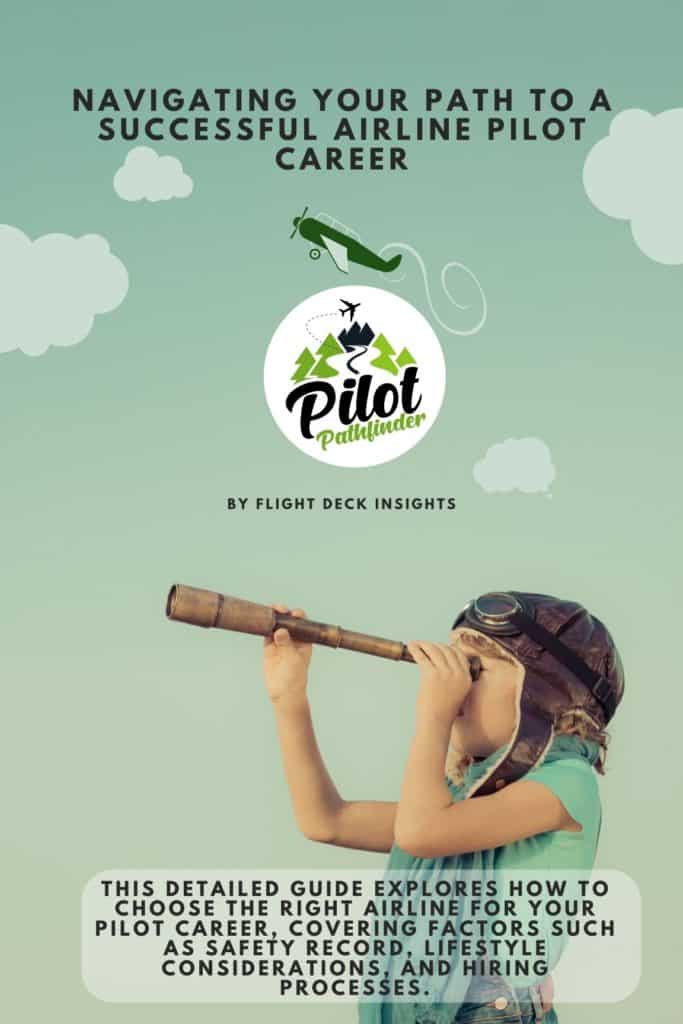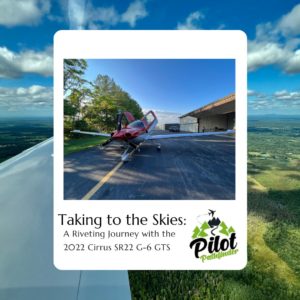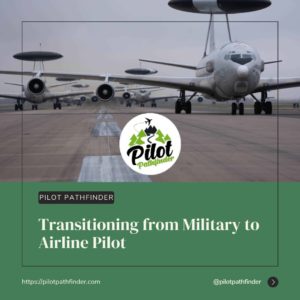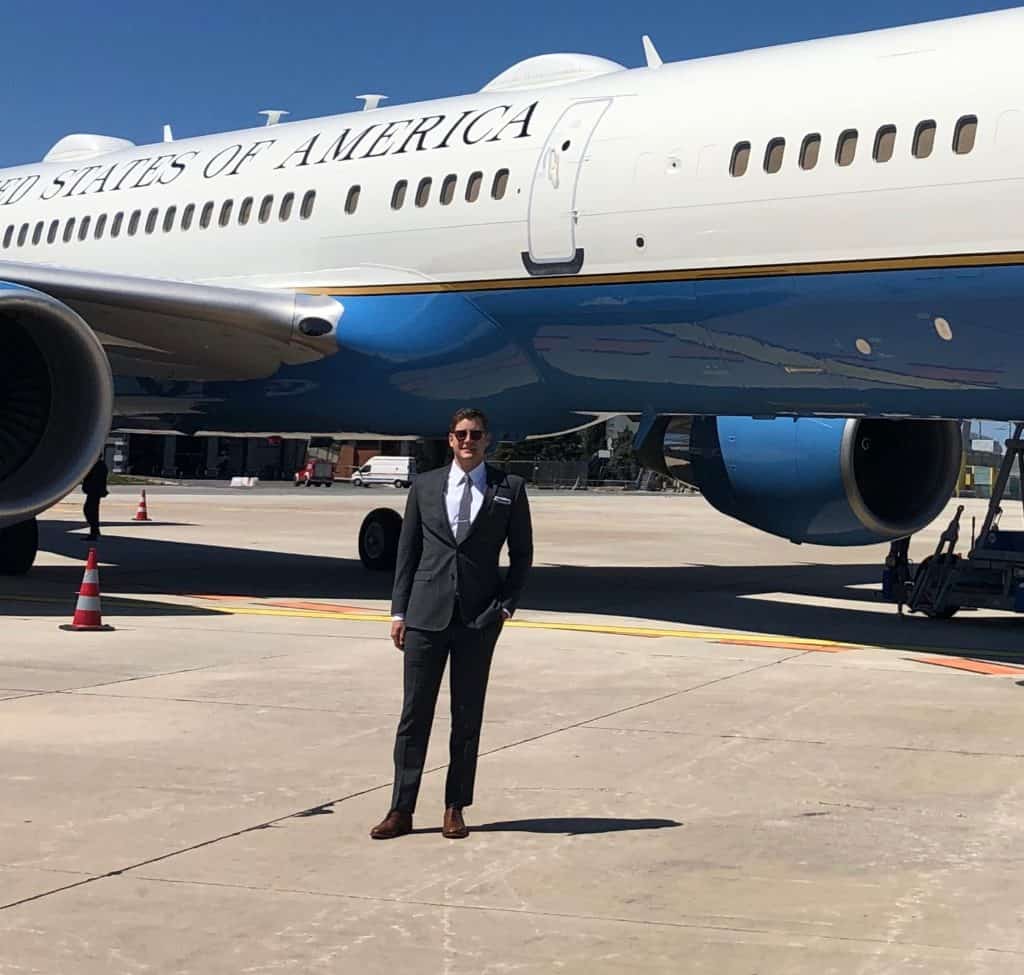The airline pilot career is one of the most revered professions in the world today. It is a job that demands a high level of skill, intelligence, and dedication. Pilots are responsible for transporting hundreds of people in aircraft that weigh over 100 tons, often at speeds exceeding 500 mph. Their job is not only to fly the plane but also to ensure the safety and well-being of their passengers.
Choosing the right airline for your career as a pilot is crucial. Not all airlines are created equal, and you must do your research before accepting any position.
Your choice of airline can have a significant impact on your career trajectory, quality of life, pay scale, and opportunities for advancement. Thus, it’s essential to make an informed decision about which airline to work for.
Brief Overview Of The Airline Pilot Career And Its Importance
The role of pilots in commercial aviation cannot be overstated. They are responsible for ensuring that millions of people arrive at their destinations safely every day.
They work long hours with little margin for error, making split-second decisions that can mean the difference between life and death. Being a commercial pilot requires extensive training and experience.
Pilots spend years honing their skills before they’re ready to take on the responsibility of flying large commercial aircraft. There are no shortcuts or easy ways out – becoming a pilot takes hard work, commitment, and dedication.
But all this effort pays off with an incredibly rewarding career that offers unparalleled job satisfaction and excellent earning potential. As technology advances further into autonomous systems on board aircraft —even though there will always be pilots— we could eventually see pilots become more like supervisors than actual operators; still being responsible for everything happening inside passenger planes
The Significance Of Choosing The Right Airline For Your Career
Choosing the right airline has a significant impact on both your professional and personal life. The airline you choose will determine your work schedule, routes flown, company culture, and opportunities for advancement. Your choice of airline can make or break your career as a pilot.
Choosing a reputable airline with an excellent safety record is crucial. Airlines with poor safety records are not worth the risk to your future career.
Large airlines often provide more job security than smaller regional carriers that may have less stable financial situations. The type of aircraft flown by the airline is also important to consider.
You may have a preference for flying larger or smaller planes or have experience with specific aircraft types that would be an asset to certain airlines. Geographic location is another critical factor when choosing an airline.
You’ll want to consider where you’d like to be based and the routes flown by the airline from that base. Some airlines may offer more opportunities to travel internationally, while others may focus on domestic flights only.
Overall, choosing the right airline is crucial for your success as a pilot. It’s essential to weigh all factors carefully before accepting any position and ensure that you’re making the best decision for your long-term career goals and quality of life.
Factors to Consider When Choosing an Airline
Safety Record and Reputation of the Airline:
As a professional pilot, safety should be your number one priority. Therefore, it is crucial that you research the safety record and reputation of any airline you are considering working for. Look for information on past incidents or accidents, as well as any ongoing safety initiatives or programs.
A good airline will have a culture of safety that permeates every level of its organization. One way to check an airline’s safety record is to review its accident history on the National Transportation Safety Board (NTSB) website.
You can also check websites like airlineratings.com which provide airline safety ratings and reviews. Don’t just take the airline’s word for it; do your homework and make sure you are comfortable with their commitment to safety.
Size and Type of Aircraft Flown by the Airline:
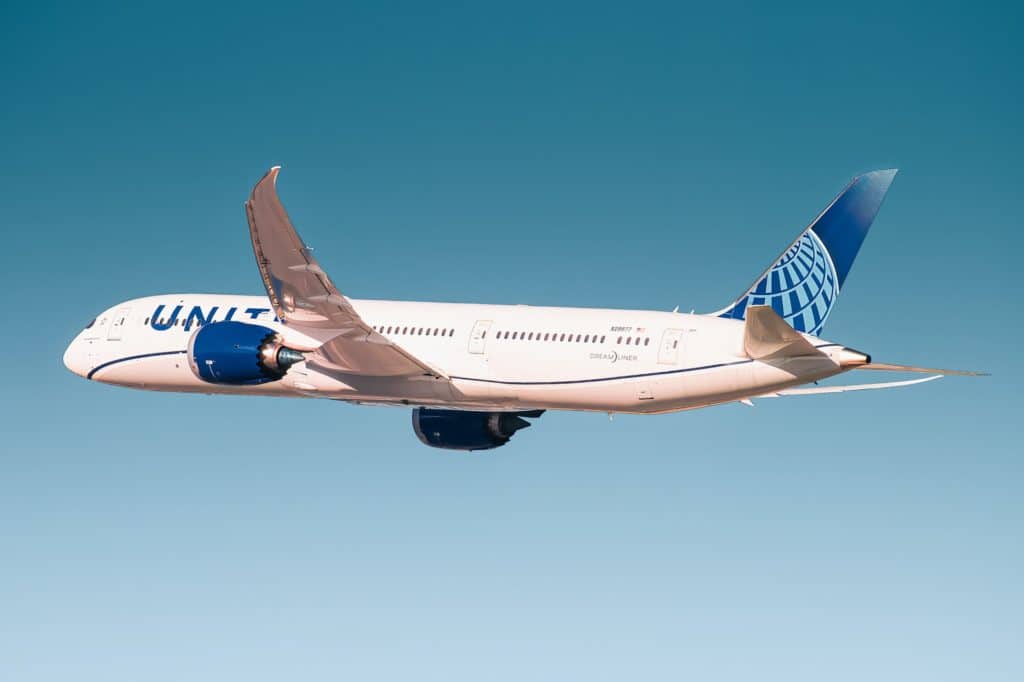
The size and type of aircraft flown by an airline can have a significant impact on your career as a pilot. Larger airlines typically offer more opportunities for advancement, while smaller regional airlines may offer more diverse flying experiences. It’s important to consider what type of aircraft you want to fly and what kind of experience you’re looking for before choosing an airline.
If you’re interested in flying larger commercial jets, then larger airlines like Delta or American Airlines will likely be a better fit for your career goals. If you’re interested in flying smaller regional jets or turboprops, then regional airlines such as SkyWest or Republic Airways might be a good option.
Geographic Location and Routes Flown by the Airline:
The geographic location and routes flown by an airline can also play a significant role in your decision-making process when choosing an employer. Consider whether you prefer living near a major transportation hub such as New York City or Los Angeles, or if you’d prefer a smaller city with a more relaxed pace of life.
Additionally, consider the routes that the airline flies and whether they align with your personal preferences. Do you want to fly international routes or domestic routes?
Are there specific destinations you’d like to visit or avoid? All of these factors should be taken into account when considering an airline as a potential employer.
The Airline’s Corporate Culture:
Corporate culture can have a significant impact on your job satisfaction as an airline pilot. Consider whether the airline’s values and culture align with your own personal values. Look for information about employee satisfaction, turnover rates, and how the company treats its employees.
Do they offer good benefits packages, flexible scheduling options, or opportunities for advancement within the company? These are all important factors to consider when evaluating an airline’s corporate culture.
When choosing an airline pilot career, it is crucial that you carefully evaluate all of the factors discussed above before making a decision. Safety should be your top priority, followed by considerations such as aircraft type and route offerings. In addition, take into account cultural fit and employee benefits when evaluating potential employers.
Remember that every pilot’s career path is unique; what works for one person might not work for another. Do your research and find an employer that aligns with your goals and values to set yourself up for success in this exciting profession.
Lifestyle Considerations
Work schedule and time away from home

One of the first lifestyle considerations you should think about when choosing an airline pilot career is the work schedule. As a pilot, you will be working long hours and may have to be away from home for extended periods of time. This disruption to your personal life can be challenging, especially if you have a family or other responsibilities.
It’s essential to consider how much time away from home you are comfortable with and what type of schedule would work best for you. Some airlines offer more flexible schedules than others, which could make all the difference when it comes to managing your work-life balance.
Company Culture and Employee Benefits
When considering a career as an airline pilot, it’s also essential to think about the company culture and employee benefits offered by different airlines. Every airline has its own unique culture, which can impact your job satisfaction and overall experience as a pilot.
Some airlines prioritize their employees’ well-being with generous employee benefits packages that include healthcare plans, retirement savings options, and even educational opportunities. Others may not offer these benefits or may only offer minimal coverage.
Before committing to any airline, take the time to research their company culture and employee benefits thoroughly. Speak with current or past pilots who have worked at that airline for insight into what it’s like working there day-to-day.
Opportunities for advancement within the company
Another critical lifestyle consideration is opportunities for advancement within the company. As an aspiring professional pilot looking for a long-term career in aviation, it’s important to think about where this path could lead. Some airlines provide extensive training programs that allow their pilots to advance through the ranks quickly.
Others may not offer clear paths for advancement or prioritize seniority over merit when filling positions. Consider your goals as a professional pilot when weighing opportunities for advancement within an airline.
If you’re looking to progress quickly or take on more significant roles in the future, a company with a solid track record of promoting from within could be the right fit. Ultimately, when it comes to choosing an airline pilot career, there are many factors to consider beyond just the pay and job duties.
Lifestyle considerations like work schedule, company culture, and opportunities for advancement can make all the difference in your long-term satisfaction and success as a professional pilot. Take the time to evaluate these factors carefully before making any commitments.
Training, Education, and Experience Requirements
Educational Requirements for Becoming a Pilot
Aspiring pilots must have at least a high school diploma or equivalent to be eligible for pilot training. However, pursuing a degree in aviation or related fields is highly recommended. It not only gives an edge over other candidates but also provides a comprehensive understanding of the aviation industry and flying techniques.
A degree in aviation introduces students to the principles of flight, aircraft maintenance, navigation systems, air traffic control systems, and other critical aspects of the profession. It also provides a hands-on flying experience that can help one become proficient in handling different types of aircraft.
In addition to academic requirements, pilots must also meet certain physical requirements such as good eyesight and hearing ability. They must also pass stringent medical examinations administered by the FAA (Federal Aviation Administration) to be certified as pilots.
Flight Hours Needed to Be Considered for an Airline Position
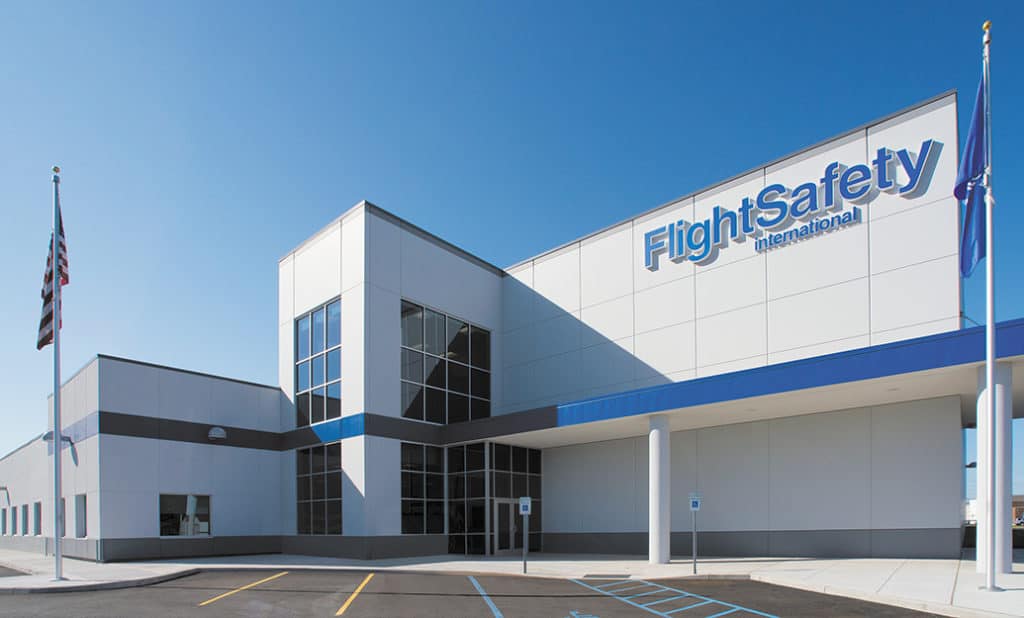
Most airlines require their pilots to have a minimum number of flight hours before they can apply for pilot positions. The required hours vary from airline to airline but generally range from 1,000-1,500 hours of total flight time. Some airlines offer pilot positions to individuals who have completed their commercial pilot license training while others require additional flight experience.
It’s important for aspiring pilots to gain as much flight experience as possible before applying for airline positions. This can be achieved by working as a flight instructor or charter pilot or participating in other aviation-related activities such as aerial photography or crop dusting.
Types of Training Programs Offered by Airlines
Airlines typically offer two types of training programs- ab initio programs and direct-entry programs. Ab initio programs are designed for individuals who are just starting their flying careers and have little or no previous flying experience. These programs provide comprehensive training that covers all aspects of flying, from basic flight maneuvers to advanced navigation systems.
Direct-entry programs are designed for experienced pilots who have already completed the required flight hours and certification. These programs provide specific training on the aircraft and operational procedures used by the airline.
Many airlines also offer simulator-based training programs that simulate real-world scenarios and help pilots practice handling emergency situations. These programs are critical in developing a pilot’s skills and building confidence.
My Take
In my opinion, pursuing a degree in aviation or related fields is an excellent way to gain a comprehensive understanding of the aviation industry, as well as hands-on flying experience. It not only provides an edge over other candidates but also prepares one for various aspects of the profession.
Additionally, gaining as much flight experience as possible before applying for airline positions is crucial. The more proficient one becomes in handling different types of aircraft, the better-prepared one will be to take on any challenge that may arise while flying.
While airlines have their own set of requirements when it comes to flight hours, obtaining additional flight experience beyond what is required can only be beneficial. It demonstrates dedication to the profession and a willingness to go above and beyond what is expected.
Taking advantage of simulator-based training programs offered by airlines can prove invaluable in preparing for real-world scenarios that pilots may face while flying. It’s essential to be well-trained and prepared for any situation that may arise while in flight.
Navigating the Hiring Process
Tips for Preparing a strong resume and cover letter
When it comes to applying for an airline pilot position, your resume and cover letter are your first impression. It is essential to make it count.
One of the most significant things you can do when preparing your resume is to highlight your flying experience. List all of the aircraft types that you have flown, as well as any certifications or special skills that you possess.
Include any leadership positions or volunteer work that you have done in the aviation industry as this will help set you apart from other applicants. In writing a cover letter, make sure that it is tailored specifically to the airline that you are applying for.
Research their company culture and values and try to incorporate them into your letter. Be sure to express why their airline is important to you and how becoming an employee would help fulfill your career aspirations.
How to ace your interview with an airline
Once you’ve submitted a strong application, the next step in landing an airline pilot position is acing the interview process. When it comes time for your interview, dress professionally and arrive early.
Be prepared with answers about why you want to work for this specific airline, what skills or experiences set you apart from other candidates, and how well-rounded of a pilot candidate are you. During the interview process, be confident but not cocky.
Answer questions honestly but concisely and always speak respectfully about previous employers or colleagues. If possible, research common interview questions ahead of time so that you can prepare thoughtful responses beforehand.
Understanding what airlines look for in potential pilots
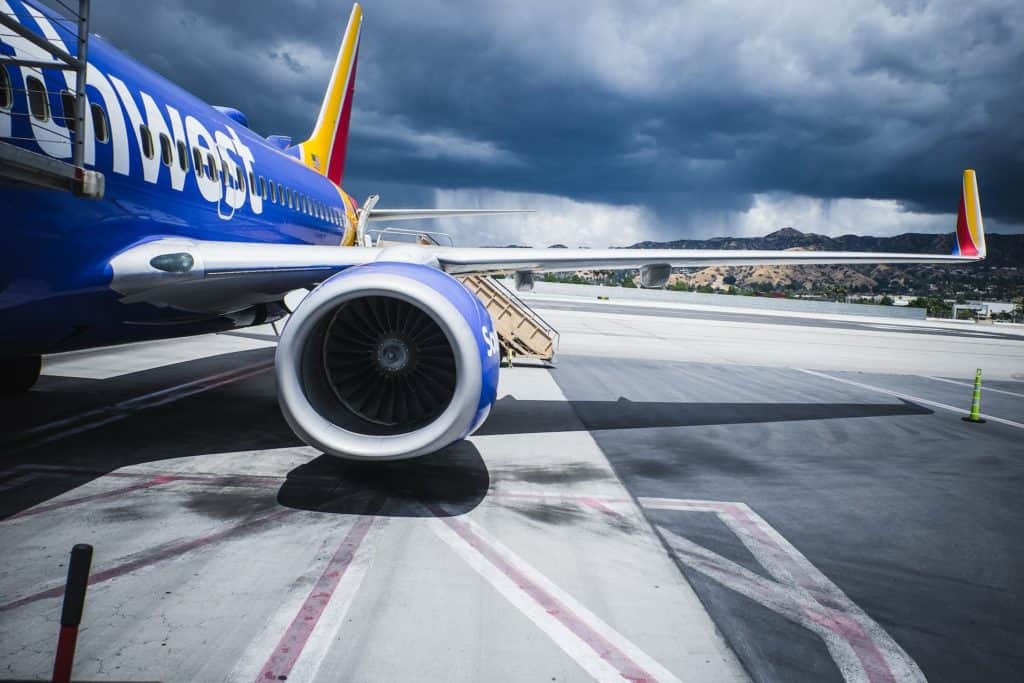
When hiring new pilots, airlines are looking beyond just technical skills like flying ability; they’re also looking at personality traits like teamwork ability, communication skills both in-aircraft on talk radio frequencies on ground control towers on human interactions with colleagues and other departments outside the aviation industry. They also look at self-awareness, situational awareness, and your ability to make good decisions under pressure. Airlines want to hire pilots who are willing to be lifelong learners, people who are always looking for new ways to improve their skills, and willing to adapt as technology changes.
Also, airlines prefer candidates that display an overall high level of fitness with an emphasis on physical conditioning. Be sure when interviewing for a job in aviation that you can not only display technical flying skills but also strong interpersonal communication skills and the ability to fit into different company cultures.
Recap
Navigating the hiring process as a pilot can be challenging, but it’s essential to take your time and prepare a well-thought-out application package. Take the time to research potential employers thoroughly before applying so that you can tailor your resume and cover letter accordingly.
During the interview process, be confident in your skills but humble enough to know that there is always room for growth. And finally, remember that getting hired is just one step towards a fulfilling career as an airline pilot because it is just the beginning of more learning opportunities and experiences ahead of you.
Salary Expectations and Benefits
Average Salaries for Different Types of Pilots at Various Airlines
One of the most common questions aspiring pilots have is how much they can expect to earn once they become a professional pilot. The truth is, salaries can vary widely depending on the airline, type of aircraft flown, and level of experience. However, it’s important to keep in mind that becoming a pilot is not a get-rich-quick scheme.
It takes years of hard work, dedication, and sacrifice before you can reach the top salary levels. At major airlines like Delta, United, and American, starting salaries for first officers (co-pilots) range from around $50-$70k per year.
Captains at these airlines typically earn between $150-$250k per year after several years of experience. However, keep in mind that these salaries are just averages and can vary greatly depending on factors such as seniority and the type of aircraft.
For pilots willing to fly for regional airlines before moving up to major carriers, starting salaries are generally lower but can still be competitive with other industries. Regional first officer pay ranges from around $30-$45k per year while captains earn around $60-$100k per year.
Benefits Packages Offered by Different Airlines
In addition to salary considerations, it’s important to take into account the benefits packages offered by different airlines when choosing your career path. Most airlines offer comprehensive health insurance plans for their employees as well as retirement plans such as 401(k) options or pensions.
Some airlines also offer unique benefits such as free or discounted flights for employees and their families or free hotel stays during layovers. These perks may seem small but can make a big difference in the quality of life for pilots who spend long periods away from home.
When comparing benefits packages offered by different airlines, it’s important to look at the details and not just the overall package. For example, some airlines may offer higher salaries but require their pilots to pay a larger portion of their health insurance premiums or offer fewer vacation days.
Ultimately, when considering your airline pilot career path, it’s important to weigh both salary and benefits packages carefully. While a high salary may be tempting, it’s important to also consider factors such as work-life balance, job security, and the overall culture of the company before making a decision.
Recap of Key Points to Consider When Choosing an Airline Pilot Career
Becoming an airline pilot is not just a profession, it’s a way of life. Choosing the right airline can play a crucial role in shaping your career and lifestyle.
Safety record and reputation of the airline, size, and type of aircraft flown by the airline, geographic location and routes flown by the airline, work schedule, company culture and employee benefits, and opportunities for advancement within the company are some factors that need to be considered when selecting an airline. Educational requirements for becoming a pilot vary from country to country but one thing that is definite is that you need to love flying.
The more flight hours you have under your belt, the better your chances are of getting hired by an airline. There are different types of training programs offered by airlines such as cadet programs or ATP (Airline Transport Pilot) certification courses.
Once you’ve chosen an airline and applied for a position, it’s important to know what airlines look for in potential pilots. Researching their hiring process beforehand can help you prepare adequately for your interview.
Your resume and cover letter should highlight your skills, experience in flying different types of aircraft as well as any relevant achievements. Salary expectations vary depending on experience levels but typically start at around $50k to $100k per annum with benefits packages that include health insurance, and 401k matching contributions among other things.
Encouragement to Pursue this Exciting Profession
Being an airline pilot is no ordinary job; it requires hard work, dedication, and passion. If you’re driven by adventure and want a high-paying job with excellent opportunities for career advancement then this profession may be right up your alley. However, being a pilot comes with its own share of challenges such as long hours away from home which can be difficult for some people.
That said, the job comes with many perks such as traveling the world, meeting new people, and experiencing different cultures. It’s important to remember that being an airline pilot is a lifelong commitment and requires constant learning as well as improving your skills.
But with patience, determination, and hard work, it can be a very rewarding career. So if you’re considering becoming an airline pilot, don’t let anything hold you back from pursuing your dreams – it could just be the best decision you ever make in your life!

